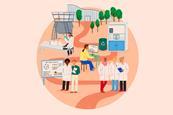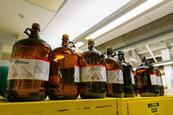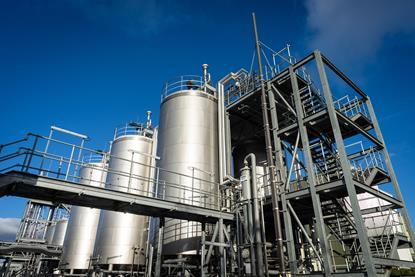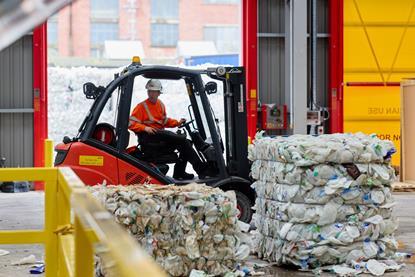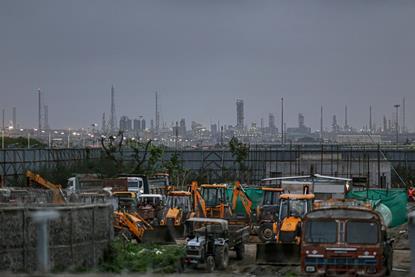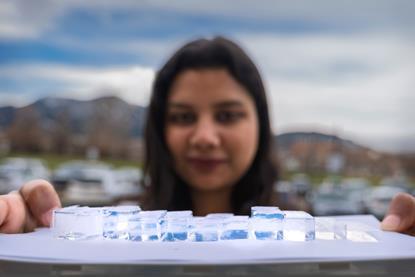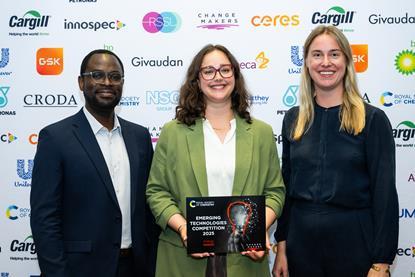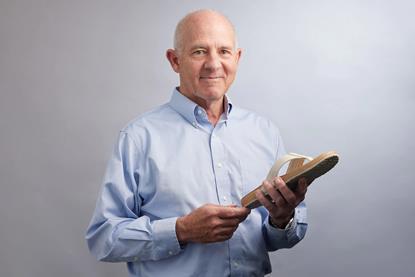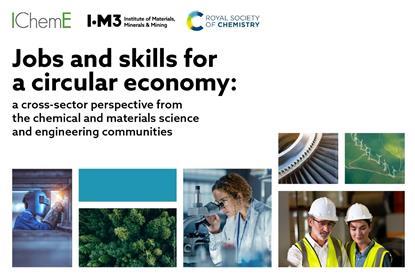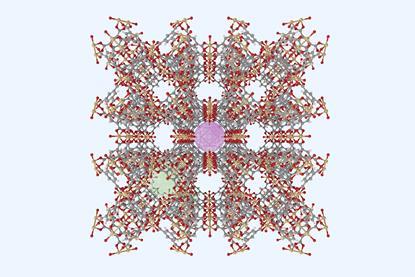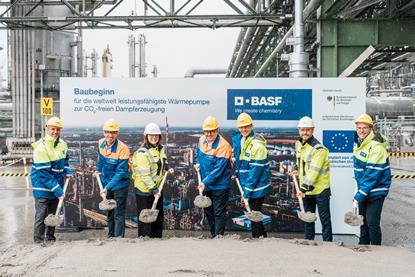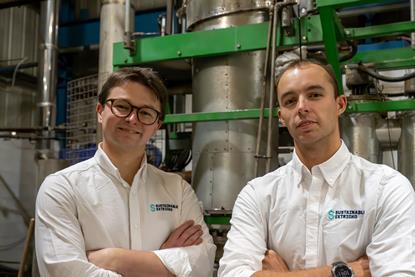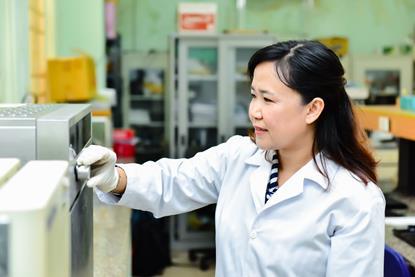Sustainability
In this collection we explore sustainable solutions for addressing global challenges, covering interdisciplinary approaches to sustainability, including renewable energy sources, green chemistry, reducing waste and emissions, circular economy principles, and solutions for a low carbon and net zero future.
Sustainable labs
The Royal Society of Chemistry’s Sustainable laboratories report uncovers what chemists are already doing to reduce the environmental footprint of their research, while at the same time continuing to deliver the ground-breaking discoveries and innovation that make the world a better place. This report shares the barriers and trade-offs they face in making sustainability-related changes, and the many opportunities for collaboration and other positive action.
The Royal Society of Chemistry also curated a special collection of research from its journals that showcases some of the innovative approaches to reduce the environmental impact of research, from solvent selection guides to machine learning approaches and more.
The labs pointing to a greener future for Africa
Tackling climate is not just a job for scientists in more developed countries. Munyaradzi Makoni talks to researchers in Kenya and South Africa to find out more
The RSC’s climate challenge
The Royal Society of Chemistry aims to use Cop26 as a springboard to a more sustainable future. Rachel Brazil reports
Sustainable lab buildings
After a decade of grassroots growth, the laboratory sustainability movement is bursting into the mainstream finds James Mitchell Crow
It's even cheaper being green
Reducing the environmental impact of your lab can save money as well as water and fuel. Phillip Broadwith reports
Making strides in sustainable laboratories: Examples of recent initiatives
Innovating for the future of sustainable labs
Chemists want help to cut the environmental footprint of their labs
Setting the standard for calculating indirect emissions
Labs’ carbon footprint under scrutiny as tool calculates impact of buildings and scientists
Majority of top chemicals on market deemed environmentally unsustainable by new metric
Green chemistry
Green chemistry and sustainable manufacturing in India
Pathways, policies and the role of chemists in building a circular chemical economy
AAAS annual meeting & plasma chemistry
In this episode, we discuss reflections from this year’s AAAS annual meeting, the latest advances in plasma chemistry, and hear the latest headlines.
Unlocking the power of plasma for chemistry
Scientists are using non-thermal plasma to produce fertiliser and long-chain hydrocarbons. Mason Wakley talks to the chemists harnessing the fourth state of matter
Rethinking hydrogen peroxide production
Hydro-Oxy and Addible both aim to transform how industry produces and uses a ubiquitous oxidant.
Sponsored
Exploring the frontiers of the periodic table: bismuth catalysis and its applications
Learn about state-of-the-art synthesis coming from one of the world’s leading catalysis research groups
Setting new standards for British laboratories
Lab Innovations brings together experts from all corners of the industry
A formula to calculate carbon
World’s leading chemical companies spearhead initiative to decarbonise supply chains
- Opinion
Green chemistry and sustainable manufacturing in India
Pathways, policies and the role of chemists in building a circular chemical economy
- Opinion
Accelerating decarbonisation for India’s cement industry
Achieving net zero by 2070 demands improvements in how cement is produced and used, as well as carbon capture technologies
- Podcast
AAAS annual meeting & plasma chemistry
In this episode, we discuss reflections from this year’s AAAS annual meeting, the latest advances in plasma chemistry, and hear the latest headlines.
- Feature
Unlocking the power of plasma for chemistry
Scientists are using non-thermal plasma to produce fertiliser and long-chain hydrocarbons. Mason Wakley talks to the chemists harnessing the fourth state of matter
- Opinion
Why everyone wants to ramp up rare earths production
Rare earth elements have become instruments of geopolitical power
- Feature
New separation methods aim to improve global rare earth supply
Rare earth elements are essential for modern technology, but their similar chemistry makes separation difficult and expensive. Now researchers are exploring new technologies to streamline processing and bring down costs.
- Business
Rethinking hydrogen peroxide production
Hydro-Oxy and Addible both aim to transform how industry produces and uses a ubiquitous oxidant.
- Webinar
Textiles in the age of sustainability: alternative methods for fabric dyeing and treatment
Learn about advances in sustainability of textile production – join us on 31 March
- Business
Funding boost for Grangemouth whisky waste-to-chemicals firms
Governments hope £9 million in grants will help MiAlgae and Celtic Renewables replace oil-refining jobs
- Opinion
Plastic recycling’s perfect storm
Pending policies that demand more recycling cannot offset problems of high costs and competition from cheap virgin polymers
- Business
Chemicals industry roundup 2025
Europe hit hard by China’s independence push, but India is growing
- Research
Insulating window material prevents heat loss while allowing more light through than glass
Easy to make polymer could be used for energy efficient buildings
- Research
Global analysis identifies trends in platform chemical research
Ammonia and methanol lead shift towards greener technologies
- Business
Taking aerogel insulation from spacecraft to living space
Nanoplume’s bio-based materials are super-insulating but also cheap and scalable
- Opinion
Inhaler propellant switch is worth the effort
Memories of a year spent testing new inhaler valve designs
- Opinion
We’ll always have Paris… won’t we?
A decade on from Cop21, the Paris agreement has delivered change, but keeping it on track is getting harder
- Business
Algenesis cracks diisocyanate problem to make fully bio-based polyurethane
Process combines algal fermentation with flow chemistry and avoids hazardous phosgene
- Opinion
Going round in circles over skills
Closing skills gaps in key professional groups requires collaboration between government, industry and educators
- Webinar
Food and us: the incredible story of how food shapes humanity
Learn about the intricate interplay between our genetic and physical makeup and the food we eat
- Business
BASF begins building huge industrial heat pump for low-carbon steam
When powered by renewable electricity, BASF says system will cut carbon emissions by up to 98%
- Business
Sailing towards recycling composite textiles
Sustainable Extricko is using superheated steam and pressure to recycle intractable materials used in sailing
- Careers
Van Thi Thanh Ho’s mission to build up sustainable chemistry in Vietnam
She’s driving commercialisation and inspiring new generations of scientists with her passion for green technology
- Research
Photocatalytic process converts carbon dioxide into ethylene with 99% selectivity
New process uses light and gold nanoparticles to hydrogenate carbon dioxide into key chemical feedstock

